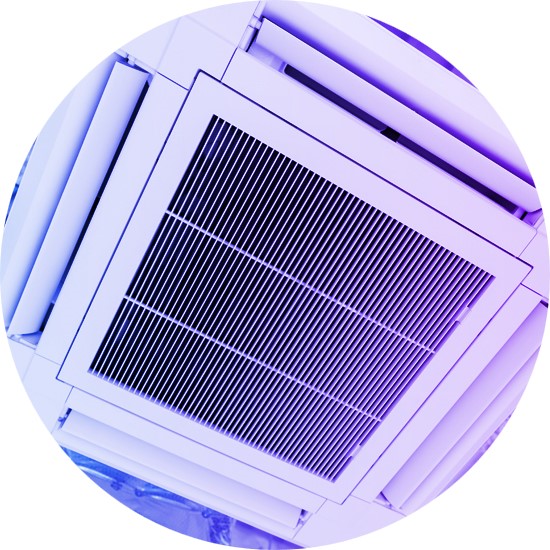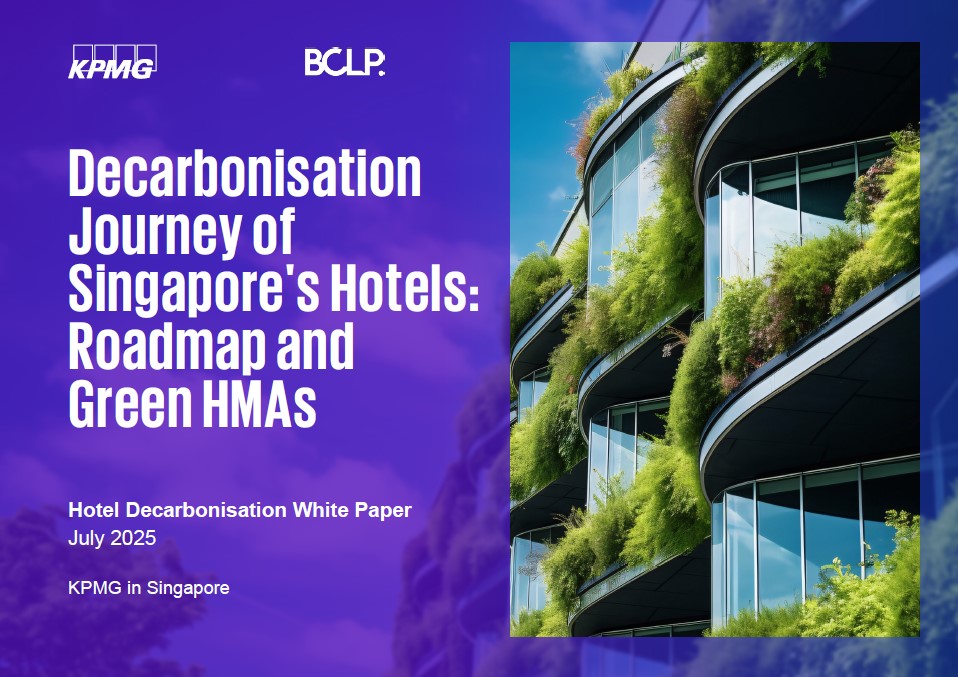Why this matters
Singapore’s hotel industry is among the most energy-intensive sectors. With rising carbon taxes, evolving regulations, and growing guest expectations, the pressure to decarbonise is mounting.
This white paper outlines a practical roadmap to help hotels transition to a low-carbon future—while staying competitive and compliant.


Hotels are high emitters and under pressure
Singapore hotels emit more CO₂ per square metre than commercial buildings. Regulatory targets and carbon pricing are tightening.

Hotel Management Agreements (HMAs)
can drive change
Green KPIs, certifications, and sustainability-linked incentives can be embedded directly into HMAs to align owner-operator interests.

Green financing is gaining traction
Sustainability-linked loans and “green key money” offer cost-effective ways to fund retrofits and new builds, if the right data and certifications are in place.

A 3-phase roadmap leads the way
From benchmarking emissions to implementing upgrades and tracking ESG progress, the roadmap offers a structured path to net-zero.

Collaboration is the catalyst
Owners, operators, regulators, and guests must work together. The cost of inaction is rising, but so is the opportunity for leadership.





